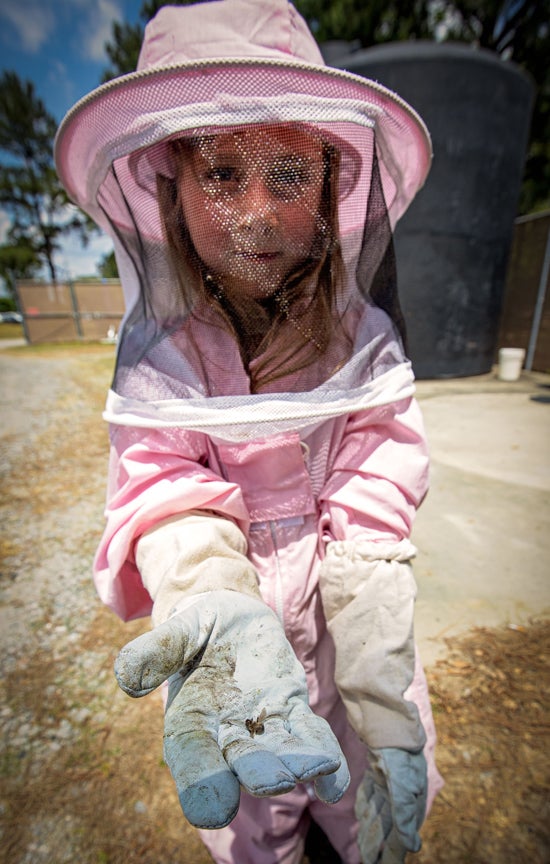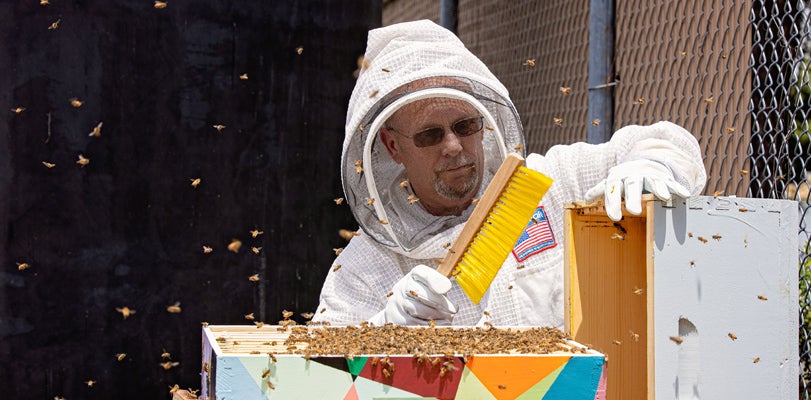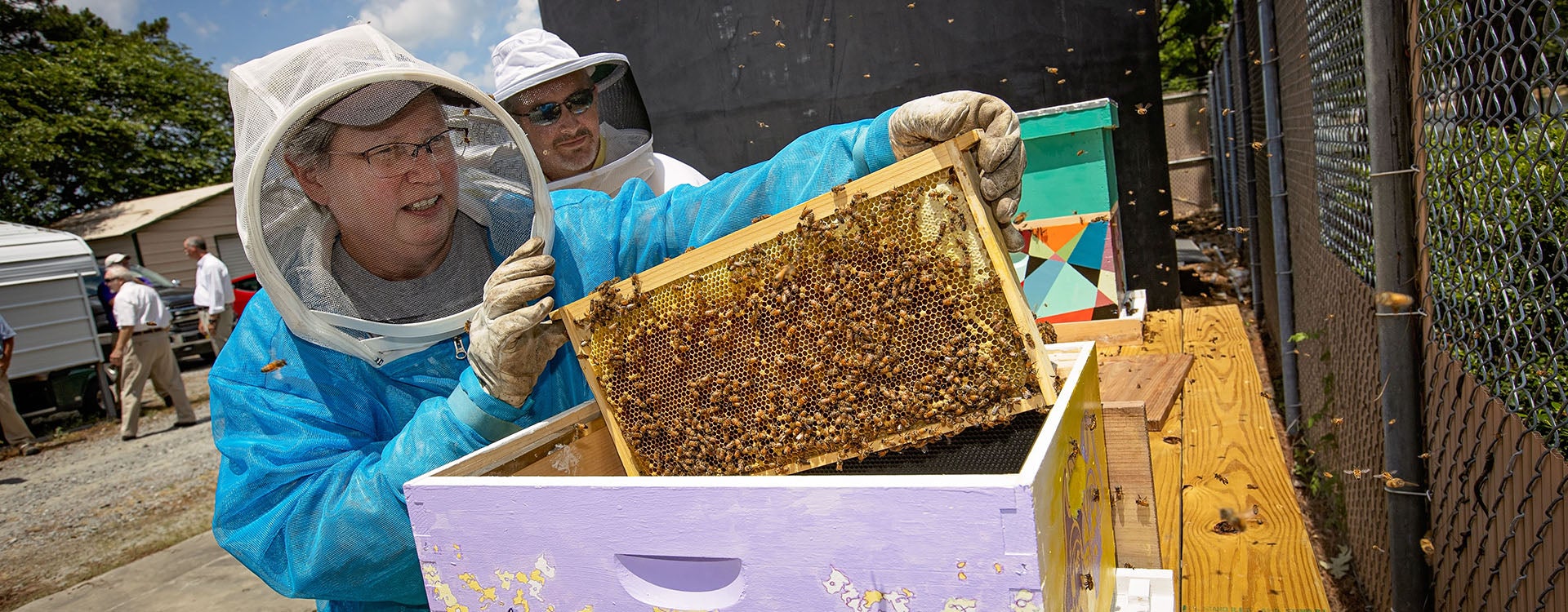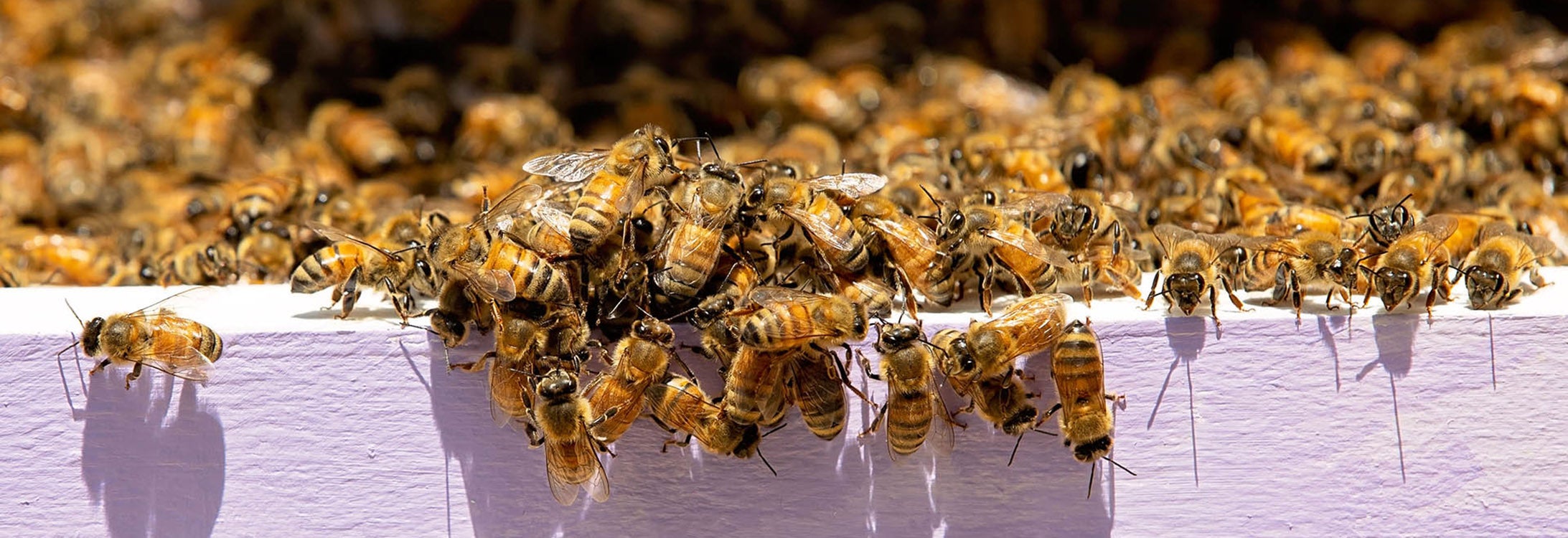PIRATES’ GOLD
New hives, habitat become home for ECU bees

Sadie Johnson, 5, the daughter of Will Johnson of All American Bee Company of New Bern, helped bring the bees to their new home.
East Carolina University’s Health Sciences Campus has about 20,000 new residents this week following the installation of two hives of western honey bees near Lake Laupus.
Chad Carwein, ECU sustainability manager, said the project is part of the university’s response to the global issue of declining bee colonies.
“Colony collapse disorder has killed about 50 percent of bee colonies worldwide in the last 10 years, and we’re trying to establish these hives because, when it gets down to it, one out of every three bites of food is pollinated by a bee,” he said.
On May 20, Will Johnson of All American Bee Company in New Bern transported the bees to campus, and with the help of Karen Mulcahy, teaching associate professor of geography, and retired ECU staff member Dale Aycock, transferred them to the new hives. After the queen is moved, the rest of the bees follow readily, Johnson said.
“Right now they are flying around and orienting themselves,” Mulcahy said. “Eventually they will fly up to 1-2 miles in search of pollen and water.”
Attendees had a chance to study equipment such as a smoker used to calm the bees and to take selfies wearing a beekeeper’s protective headgear. Johnson, pointing out a bee carrying away a dead member of the colony, said, “There’s the undertaker bee. Every bee has a job.”
In addition to the hives, ECU Facilities Services has planted native species favorable for bees and other pollinators in the landscaping.
“One of the goals of our sustainability plan is to install more native species on campus, which not only provides habitat for pollinators, but they’re more draught tolerant so they require less irrigation,” Carwein said.
Grounds crew leader Todd Inman said he planted one of the nearby flowerbeds and was glad to see the beehives installed. “My neighbor has a hive, and it has been amazing to see the difference in my garden,” he said.
The hives, the pollinator-friendly landscaping and the awareness campaign are part of an effort to have the university designated as a Bee Campus USA.
“This project will continue to evolve,” Carwein said. “This is just our first installation of hives. We’re looking at potential locations on both campuses to put in more hives in the future.”

Dale Aycock makes sure the bees have moved from the old hive to the new.
The sustainability team is also hoping to install a bee cam that will provide a live look at what’s going on around the hives. Carwein said the video feed would be available online at sustain.ecu.edu.
“It’s not just a novelty,” he said. “They can identify many of the potential issues with the hives just from having a look at the camera.”
Art student Nataly Monter painted the outside of the hives.
“We’ve tried to bring in as many departments and groups as we can to really make this a collaborative project,” Carwein said.
Even ECU Dining Services may have a chance to get in on the act once the hives begin to produce honey.
“They have expressed interest in using the honey for special events on campus,” Carwein said, in which case it would be identified as having been produced at ECU. But what would it be called?
“Pirates’ Gold,” Johnson suggested.
And that sounds like a winner.

Karen Mulcahy, left, and Will Johnson transfer bees into a hive on ECU’s campus.
